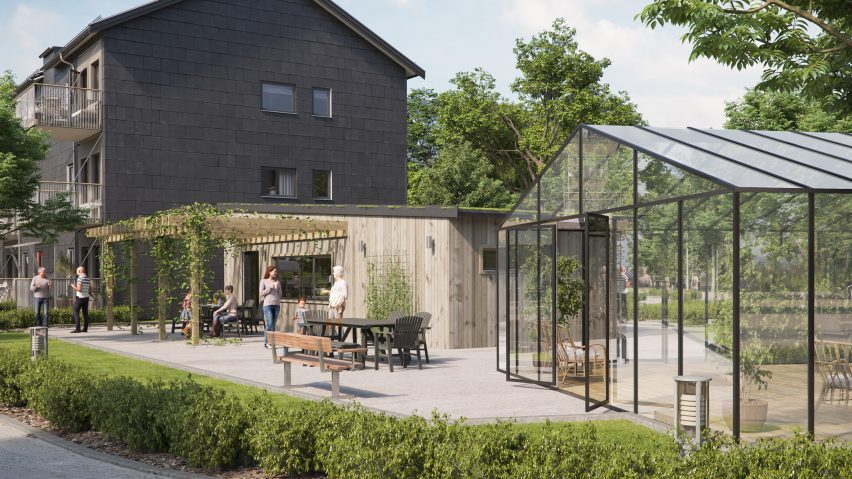
IKEA and Queen of Sweden adapt modular BoKlok housing for the elderly
IKEA and Skanska are collaborating with the Queen of Sweden on an offshoot of their modular BoKlok housing that will meet the needs of the elderly and people with dementia.
Named SilviaBo, the housing project is being developed in Sweden by IKEA, Skanska and Silviahemmet, a dementia-care foundation established by Queen Silvia of Sweden.
The project is a response to the country's ageing population and resultant demand for accessible dwellings.
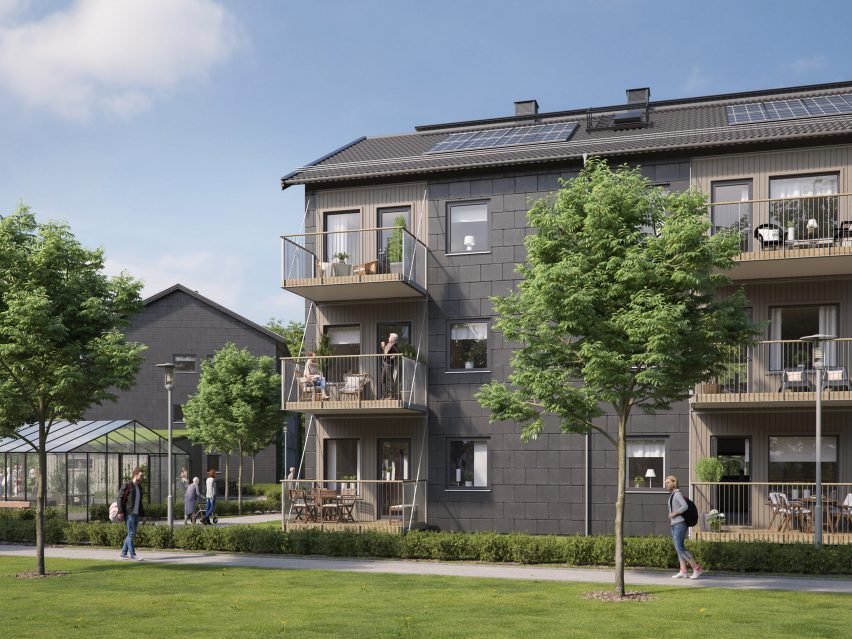
It will rely on the same prefabricated timber units as BoKlok, but incorporate shared social facilities and modified interiors with more "dementia-friendly layouts" to help the elderly live independently for longer.
The first six SilviaBo apartments are currently being completed outside Stockholm, and IKEA is now in the first stages of securing land for future projects elsewhere.
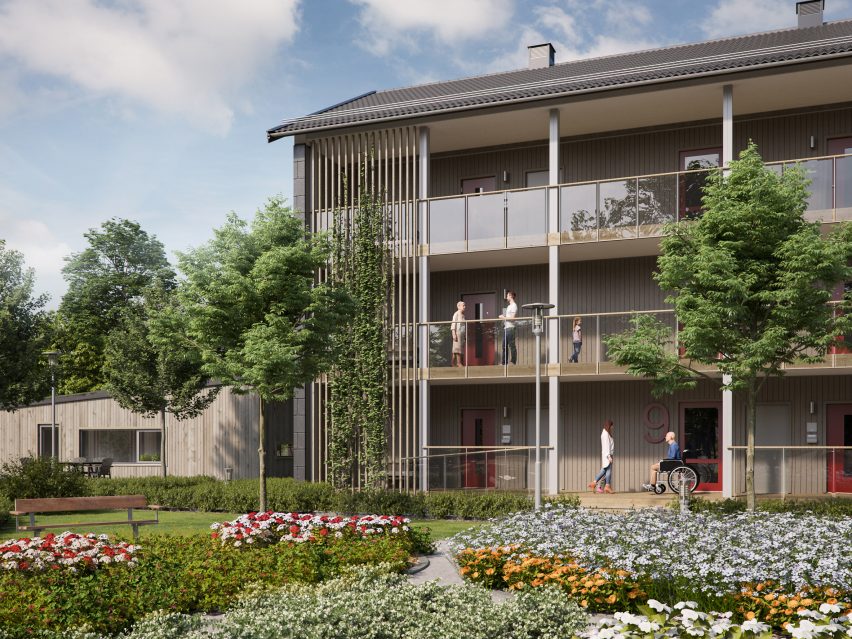
"There is a huge need in Sweden for housing for the elderly. The demographic changes we see seems to be more or less the same in many countries," said BoKlok's project manager Magdalena Stadler.
"Today, the offerings on the housing market are quite expensive – for the few affluent, rather than for the many. Our hope is that SilviaBo can be a small part of a better solution," she told Dezeen.
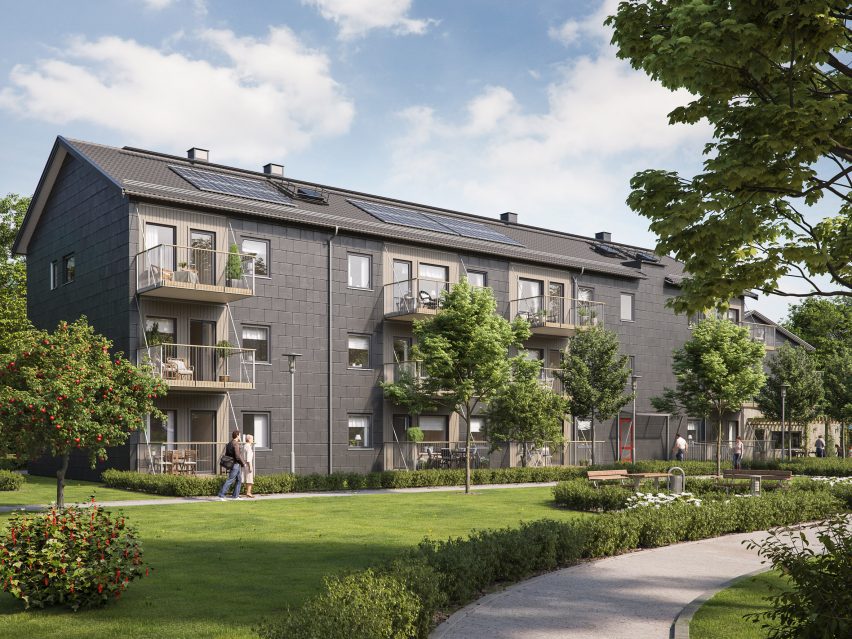
SilviaBo evolved from the Queen of Sweden's ambition to develop a housing model that could help elderly couples live comfortably in their homes for as long as possible, even if one of them was to develop dementia.
Like BoKlok, it will be built from wooden components that are prefabricated and assembled on site. The housing will vary from two to four storeys, and host a mix of one and two bedroom apartments.
Key features of SilviaBo that will differentiate it from BoKlok include wide entrances and flat walkways suitable for wheelchairs, minimal thresholds for elevators and stairwells, automatic door-openers and extra lighting.
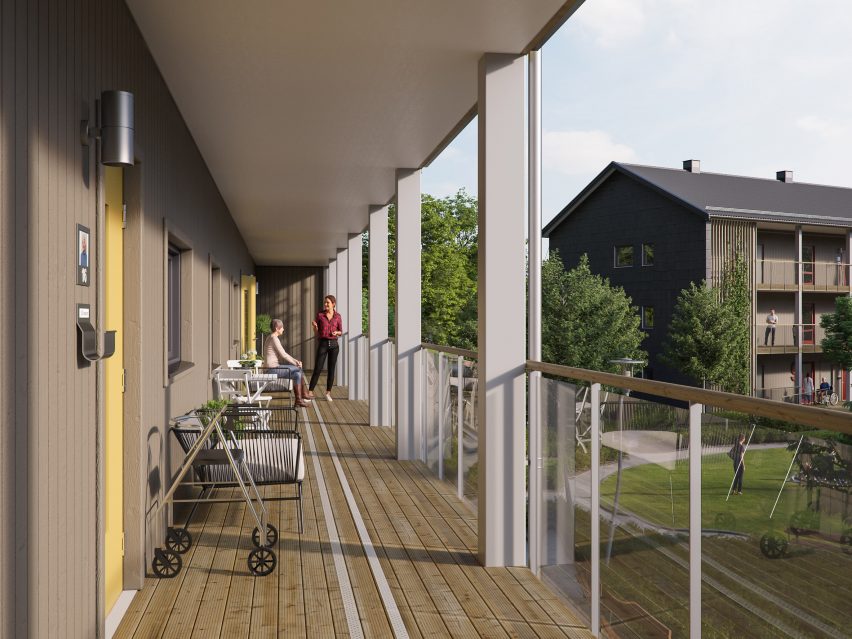
There will also be features tailored more specifically for people affected by dementia, including clear and enlarged wayfinding and signage, low shower-walls for assisted bathing, heat sensors for stoves and calming interior finishes for all rooms.
It is hoped that this will enable the elderly – specifically those with memory loss – to live independently and at home for as long as possible, and ultimately help the government save money it would otherwise spend on care.
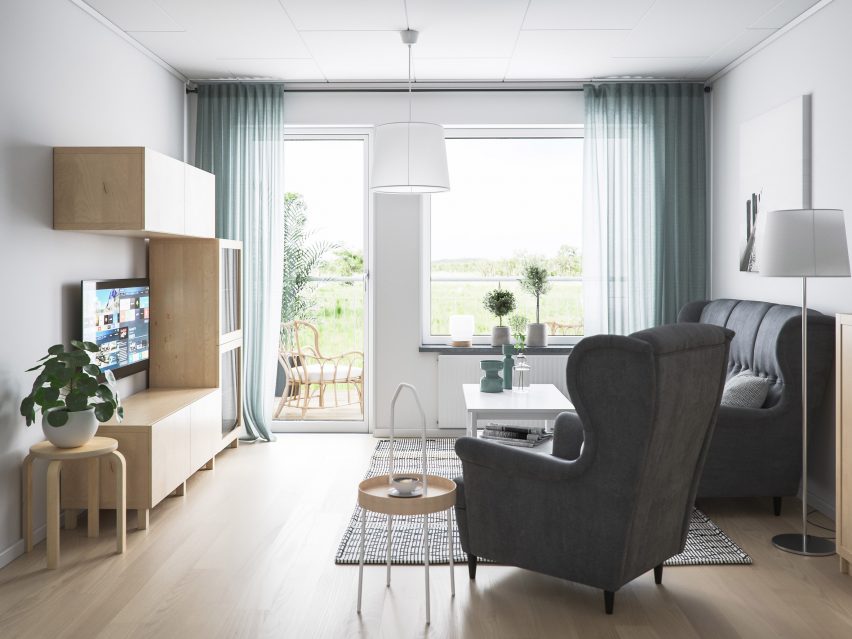
"In its basic construction system SilviaBo looks very much the same as BoKlok," added Stadler.
"However, there are about a hundred small and big differences regarding the area, the houses and the apartments," she told Dezeen."All of course highly accessible for a person with a wheelchair or a roller."
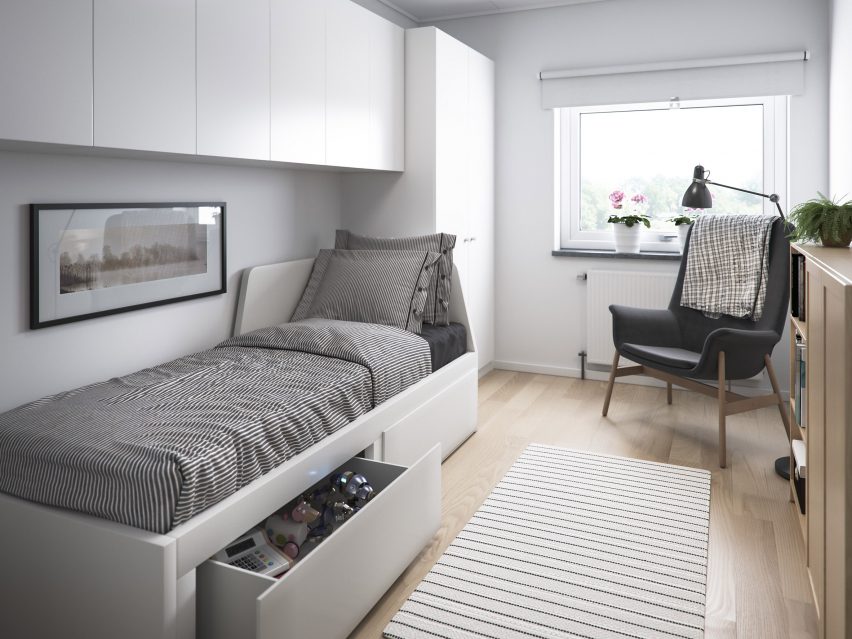
Wellbeing and social interaction will also form a key part of SilviaBo. IKEA envisages the housing incorporating a number of community facilities like park-like gardens with flowers and vegetables, a "village green" and a clubhouse complete with barbecues and pergolas.
The housing will be complete with solar panels, green roofs and, like BoKlok, IKEA furnishings throughout.
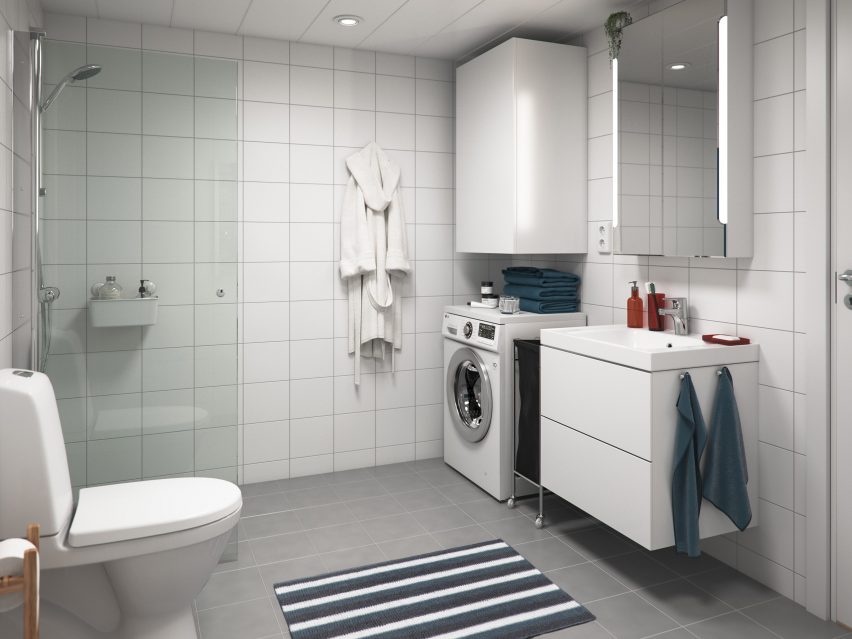
There are approximately 11,000 BoKlok homes across Sweden, Finland and Norway. IKEA and Skanska have also recently signed a deal with Worthing council in West Sussex to bring the low-cost housing to the south of England.
Ageing populations are becoming increasingly common around the world, though infrastructure suited to their needs is often failing to keep up. In 2016, Architizer co-founder Matthias Hollwich proposed that co-housing the solution could be a solution.
The first co-housing built for the elderly in the UK was completed by Pollard Thomas Edwards in 2016. The complex is women-only, and comprises brick mews houses arranged around a communal garden.